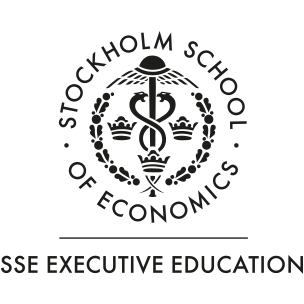Integrate the new with the old – even if it hurts
Ebba Laurin, PhD candidate and researcher at the Stockholm School of Economics, knows better than most how traditional Swedish companies should act in order to approach and co-exist with innovative start-ups, and what they can learn from each other. We asked Ebba five quick questions about her research and experiences.
 What is your area of research and what is your main focus?
What is your area of research and what is your main focus?
I do research in sales involving customer relationships and the strategic personal sales role in business transformation in some of Sweden’s most well-established companies. It’s about how to unite your history as a company and your business relationships with a new path of innovation where business deals rather than technology play a central role.
Based on your research, what would you say is the most important thing that Swedish companies should adopt and develop?
Agile business development and sales. But also developing their ability to learn by thinking outside the box and enacting change. By welcoming new players, new methods and new outcomes. By integrating lessons learned, even the ones that hurt, with established traditions. And by diversifing and integrating, and welcoming a different and new kind of analysis – bring in a researcher to the company’s Board, for example. Paradoxically enough, being anchored in tradition brings about the power to drive and sustain innovation. Through respect for tradition and innovation, a company can unite instincts, thoughts and actions. All three dimensions must be in sync in order for innovation, learning and change to be sustainable in different contexts.
Stockholm is viewed today as one of the top innovation hubs in the world after Silicon Valley. Why do you think that is?
We have great prerequisites in this country because it’s relatively easy to get access to the right people and start doing business. We are interested in the issues and are good at both identifying problems and solving them. This is true for Sweden in general, but Stockholm in particular creates an enormous number of start-ups in lots of different industries. It’s been that way for a long time. I’ve spent quite a few years in business, so I remember in the early 2000s when the glass sculpture at Sergelstorg adorned the front of Newsweek with the title “Stockholm – The telecom and IT capital of the world.” Jeff Bezos was mingling at the Vasa Museum, and he told a wonderful anecdote from Amazon’s early days about customer orientation that I use with my students.
The most successful Swedish enterprises can now be divided into large, traditional industrial companies and innovative smaller companies. What do you think they could learn from each other?
The lessons are innumerable and completely reciprocal. We all need to learn that we are responsible organizations with some degree of humility about the fact that we are all part of a larger system. We need one another to do big business in contexts that require increasingly complex solutions.
More specifically, the large listed companies need to learn the art of simply learning, and the small ones need to learn to dare to stand up for and convey their company’s substance and value. Our companies, old and new alike, are part of a cycle in Sweden. In this cycle, there is the potential to enrich each of its companies and organizations when we look at how we can co-create new business solutions for the global market.
What are the main pitfalls for Swedish companies today?
Just as with cultures, nations, groups and individuals, the biggest pitfall is thinking that the individual is an island.


